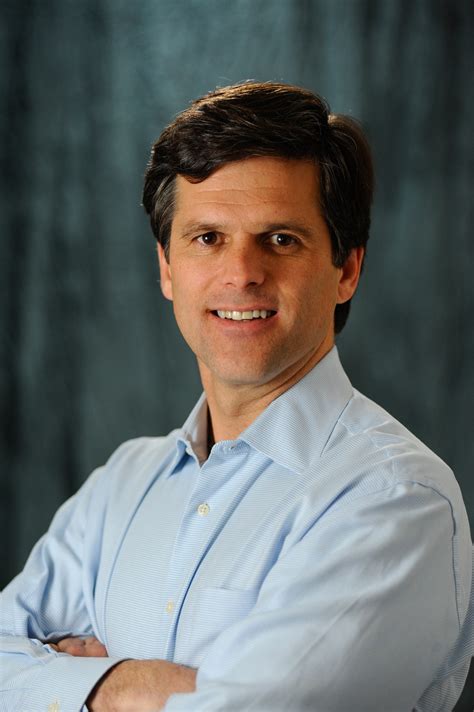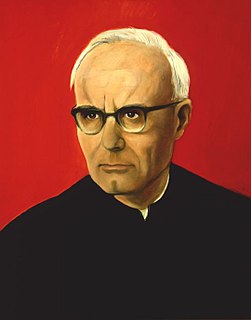A Quote by J. D. McClatchy
At least since Darwin's day, we have known that all of us originally emerged from the sea. That fact may account for our abiding fascination with it, our longing to return there, whether to sail the main or merely contemplate its restless enormity.
Related Quotes
I really don't know why it is that all of us are so committed to the sea, except I think it is because in addition to the fact that the sea changes and the light changes, and ships change, it is because we all came from the sea. And it is an interesting biological fact that all of us have, in our veins the exact same percentage of salt in our blood that exists in the ocean, and, therefore, we have salt in our blood, in our sweat, in our tears. We are tied to the ocean. And when we go back to the sea, whether it is to sail or to watch it we are going back from whence we came.
We exist only by virtue of what we possess, we possess only what is really present to us, and many of our memories, our moods, our ideas sail away on a voyage of their own until they are lost to sight! Then we can no longer take them into account in the total which is our personality. But they know of secret paths by which to return to us.
It is more than twenty years since we left the city. This is a serious chunk of time, longer than the years we spent living there. Yet we still think of Jerusalem as our home. Not home in the sense of the place that you conduct your daily life or constantly return to. In fact, Jerusalem is our home almost against our wills. It is our home because it defines us, whether we like it or not.
To be good Christians you have to contemplate the suffering humanity of Jesus. "How can we bear witness? Contemplate Jesus. How can we forgive? Contemplate Jesus suffering. How can we not hate our neighbor? Contemplate Jesus suffering. How can we avoid gossiping about our neighbor? Contemplate Jesus suffering. There is no other way". These virtues are the those of the Father, who forgives us always, and Our Lady, Our Mother, shares in these virtues too.
The human longings that are deep inside of us never go away. They exist across cultures; they exist throughout life. When people were first made, our deepest longing was to know and be known. And after the Fall, when we all got weird, it's still our deepest longing - but it's now also our deepest fear.
There are various art forms we may or may not have talent for, may or may not have time for, and we may or may not be able to express ourselves in, but we ought to consider this fact-that whether we choose to be an environment or not, we are. We produce an environment other people have to live in. We should be conscious of the fact that this environment which we produce by our very 'being' can affect the people who live with us or work with us.
The Church demonstrated the falsity and folly of Darwin's theories by showing that they contradicted the Mosaic account of creation, and now that the theories of Darwin having been fairly established, the Church says that the Mosaic account is true because it is in harmony with Darwin. Now, if it should turn out that Darwin was mistaken, what then?
But often, in the world’s most crowded streets, But often, in the din of strife, There rises an unspeakable desire After the knowledge of our buried life; A thirst to spend our fire and restless force In tracking out our true, original course; A longing to inquire Into the mystery of this heart which beats So wild, so deep in us—to know Whence our lives come and where they go.
It is rare that we use our thinking faculty as resolutely as an irishman his spade. To please our friends and relatives we turn out our silver ore in cartloads, while we neglect to workour mines of gold known only to ourselves far up in the Sierras, where we pulled up a bush in our mountain walk, and saw the glittering treasure. Let us return thither. Let it be the price of our freedom to make that known.
I sing your restless longing for the statue, your fear of the feelings that await you in the street. I sing the small sea siren who sings to you, riding her bicycle of corals and conches. But above all I sing a common thought that joins us in the dark and golden hours. The light that blinds our eyes is not art. Rather it is love, friendship, crossed swords.
Let us contemplate our forefathers, and posterity, and resolve to maintain the rights bequeathed to us from the former, for the sake of the latter. The necessity of the times, more than ever, calls for our utmost circumspection, deliberation, fortitude and perseverance. Let us remember that "if we suffer tamely a lawless attack upon our liberty, we encourage it, and involve others in our doom," it is a very serious consideration that millions yet unborn may be the miserable sharers of the event.







































